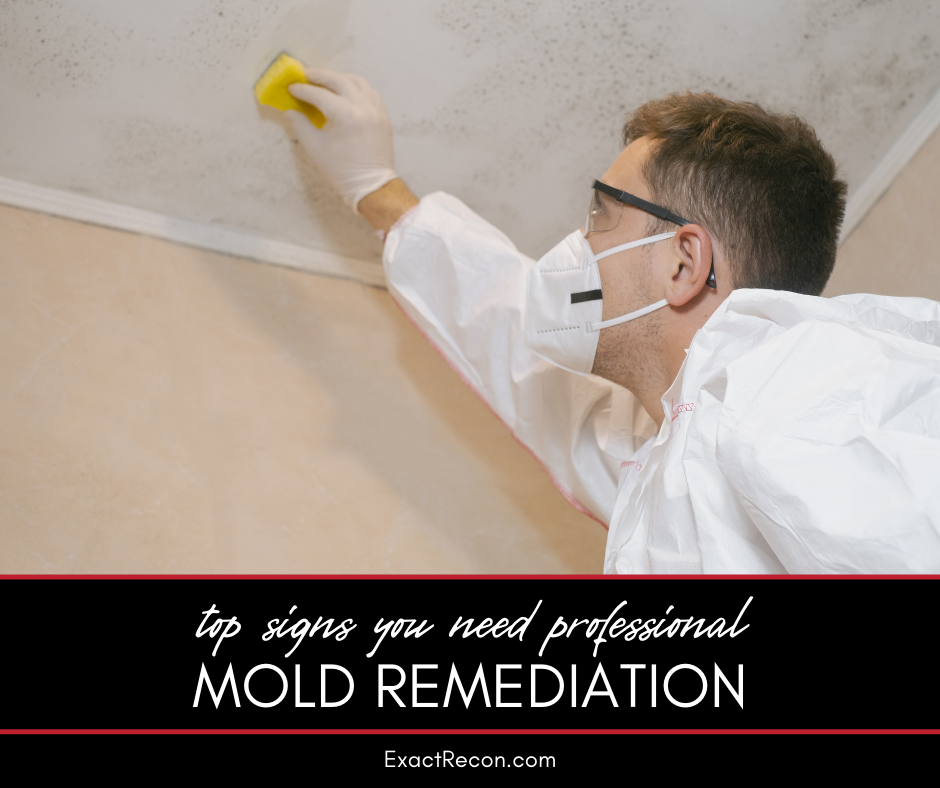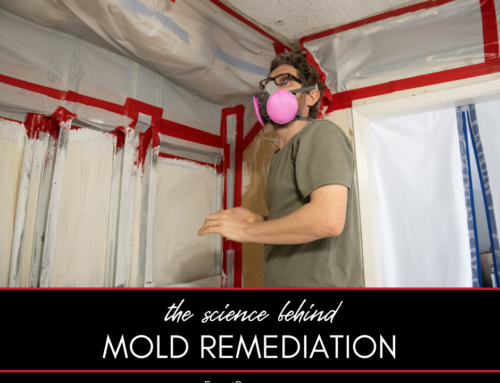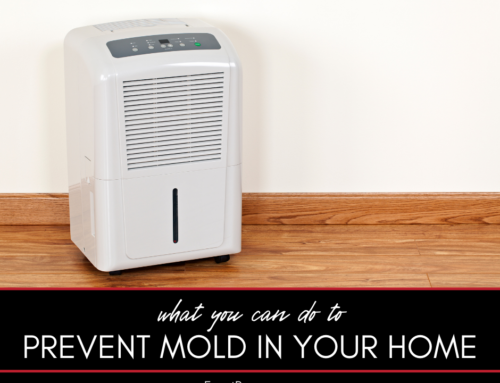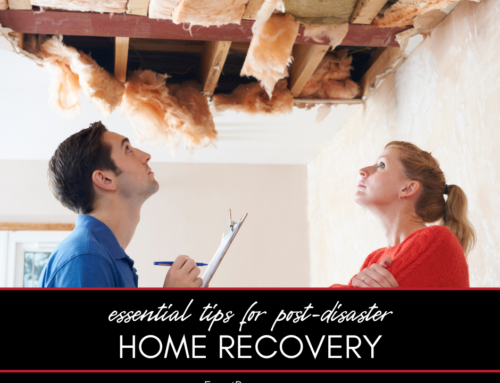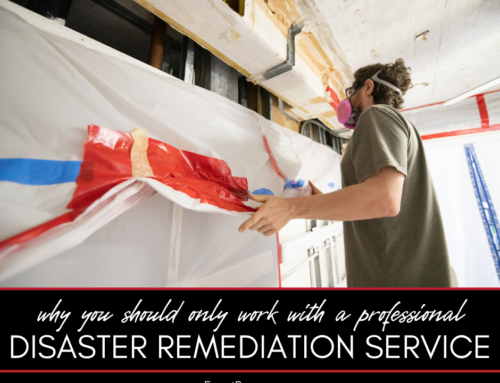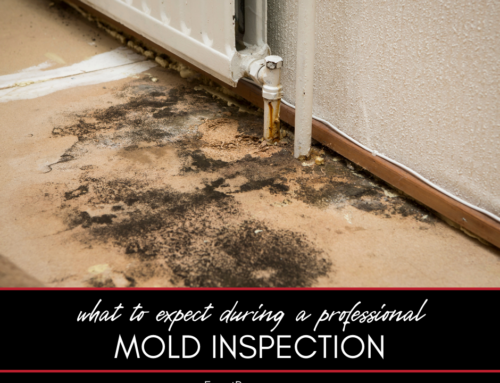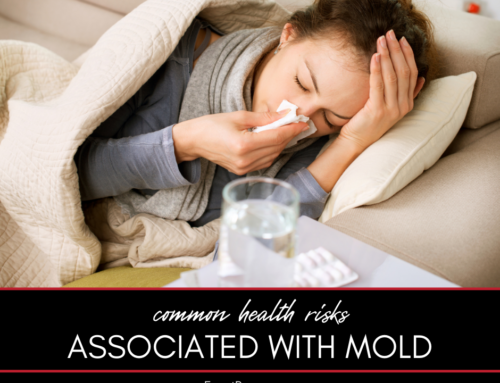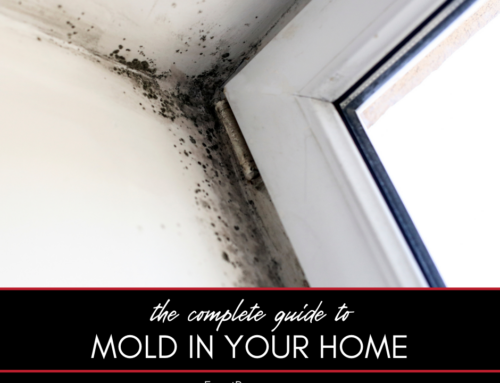Mold can cause significant problems in your home, from structural damage to health issues. Recognizing the signs that you need professional mold remediation is essential for maintaining a safe and healthy living environment.
Top Signs You Need Professional Mold Remediation
Mold can grow in hidden areas, making it difficult to detect. This guide explains the following:
- Visible mold growth
- Musty odors
- Water damage
- Allergic reactions
- Health problems
- Structural damage
- Previous mold issues
- Humidity and condensation
Here’s a closer look at each.
Visible Mold Growth
One of the most obvious signs that you need professional mold remediation is visible mold growth. Mold can appear as black, green, white, or even orange spots on walls, ceilings, floors, or other surfaces. If you see mold growing in your home, it’s crucial to address the issue immediately. Mold spreads quickly and can cause extensive damage if not treated by a professional.
Related: Expert tips for dealing with water and fire damage, mold and more
Musty Odors
A persistent musty odor is a common sign of mold growth, even if you can’t see it. Mold often grows in hidden areas, such as behind walls, under flooring, or in crawl spaces. If you notice a musty smell that doesn’t go away with regular cleaning and airing out, it’s a strong indication that mold is present. A professional mold inspection can help locate and address the source of the odor.
Water Damage
Water damage creates an ideal environment for mold growth. If your home has experienced any form of water damage, such as flooding, leaks, or burst pipes, there is a high risk of mold developing. Look for signs of water damage, such as stains on walls or ceilings, peeling paint, or warped floors. Addressing water damage promptly and thoroughly can prevent mold from taking hold, but if mold has already started to grow, professional remediation is necessary.
Related: Creating a disaster preparedness kit for your home
Allergic Reactions
Mold spores can trigger allergic reactions in many people. Symptoms include sneezing, coughing, itchy eyes, runny nose, and skin rashes. If you or your family members experience these symptoms, especially when at home, it could be a sign of mold in your environment. Professional mold remediation can remove the mold and improve indoor air quality, alleviating these health issues.
Health Problems
Beyond allergic reactions, mold can cause more serious health problems, particularly for individuals with respiratory conditions, weakened immune systems, or chronic illnesses. Symptoms can include persistent headaches, difficulty breathing, and fatigue. If you notice a correlation between your health issues and time spent at home, it’s essential to investigate the possibility of mold and seek professional remediation if necessary.
Structural Damage
Mold can cause significant structural damage to your home if left untreated. It can weaken walls, floors, and ceilings, leading to costly repairs. Signs of structural damage from mold include sagging ceilings, warped floors, and crumbling walls. If you notice these issues, professional mold remediation is crucial to prevent further damage and restore the integrity of your home.
Previous Mold Issues
If your home has had mold problems in the past, there’s a higher likelihood of mold returning, especially if the underlying moisture issues were not fully resolved. Regular inspections and maintenance are essential to prevent recurring mold problems. If mold does reappear, professional remediation ensures that it is thoroughly removed and that measures are taken to prevent future growth.
Humidity and Condensation
High humidity levels and condensation in your home create an environment conducive to mold growth. If you notice excessive moisture on windows, walls, or other surfaces, it’s important to address the humidity issue to prevent mold. Using dehumidifiers, improving ventilation, and fixing leaks can help control moisture levels. If mold has already started to grow due to high humidity, professional remediation is necessary to eliminate it and prevent further spread.
FAQ About Mold Remediation
Check out these commonly asked questions about mold remediation. If you don’t see your question here, please call our office and we’ll find you the answers you need.
How Soon Should I Call a Professional for Mold Remediation?
You should call a professional for mold remediation as soon as you notice any signs of mold growth or related health symptoms. Prompt action can prevent further damage and health issues.
What Is Involved in Professional Mold Remediation?
Professional mold remediation involves a thorough inspection to identify the source and extent of the mold. The affected areas are then contained to prevent spread, and the mold is removed using specialized equipment and techniques. The area is then cleaned and sanitized, and measures are taken to prevent future mold growth.
Can I Remove Mold Myself?
While small areas of mold can sometimes be cleaned with household products, larger infestations or mold in hidden areas should be handled by professionals. DIY methods may not fully eradicate the mold and can sometimes make the problem worse.
How Much Does Professional Mold Remediation Cost?
The cost of professional mold remediation varies depending on the extent of the mold problem and the size of the affected area. It’s best to get a detailed estimate from a professional remediation company.
Related: Restoring your business after a natural disaster
How Can I Prevent Mold from Returning After Remediation?
To prevent mold from returning, control moisture levels in your home by fixing leaks, improving ventilation, and using dehumidifiers. Regularly inspect your home for signs of mold and address any issues promptly.
Do You Need a Disaster Remediation Expert in Washtenaw County or Jackson County?
If your home has already been damaged, we can help. Check out our services and call Exact Recon for your free disaster remediation quote today. We offer:
- Water damage restoration
- Fire damage restoration
- Mold removal and remediation
- Fire and smoke restoration
- Sewer cleanup and disinfecting
- Reconstruction
- Wind and storm damage repair

